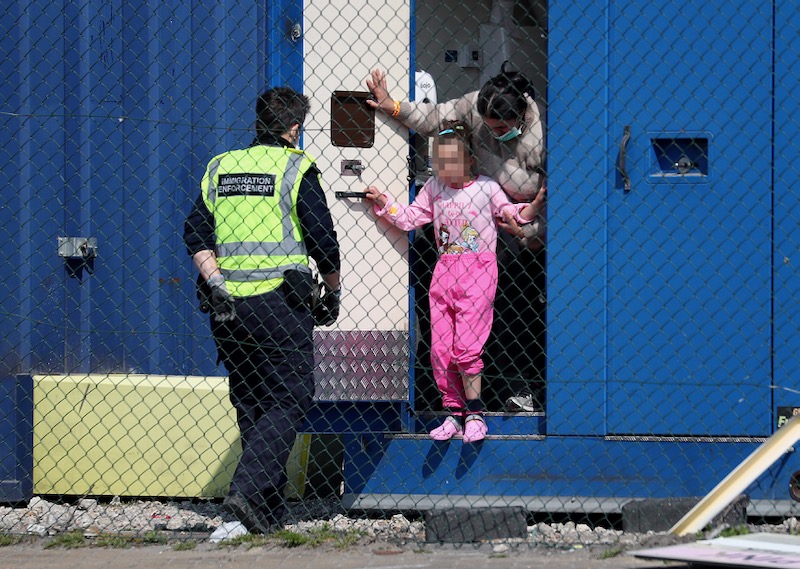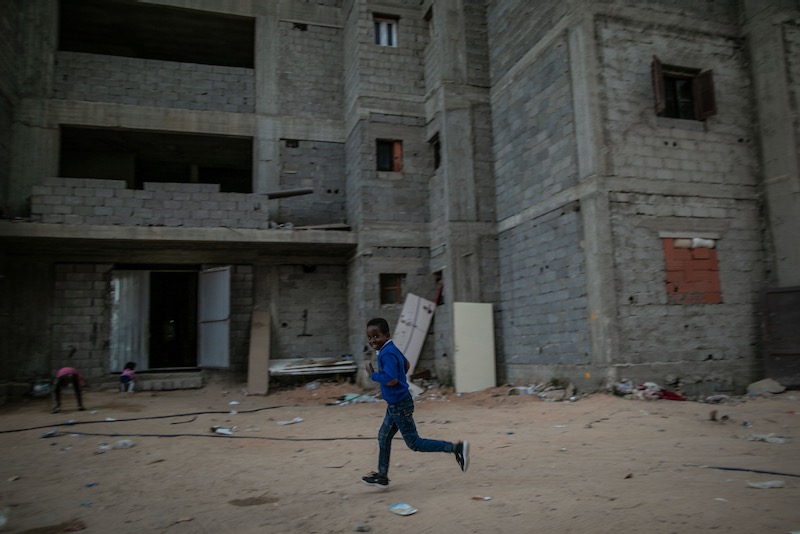The Holy See has issued guidelines to local churches for how they can speak out for the “invisible” 50 million people across the world forced to flee their homes from within a country.
The document, Pastoral Orientations on Internally Displaced People, sets out ways for Catholics to lobby governments and engage civil society about the struggles of those forcibly displaced.
Cardinal Michael Czerny, the Vatican’s point man on refugees, presented the document today during a live-streamed press conference attended by journalists remotely. In answer to a question from The Tablet, the cardinal said that Covid-19 was opening people’s eyes to the contribution of migrant workers and revealing the weakness of the “hollow and shallow attacks” on new arrivals.
The guidelines, however, focus on those displaced from their homes but do not flee to another country.
“Internal displacement takes place in very many different contexts...triggers include armed conflicts, situations of generalised violence, human rights violations, sudden onset disasters as well as disasters that develop slowly,” the document explains.
“The phenomenon of internal displacement is very complex and hard to address. The difficulty of the international community to intervene and the lack of interest by the media and wider society have sometimes resulted in IDPs being ‘forgotten’, increasing their vulnerability.”
Catholics are being encouraged to “identify your country’s government officials who are responsible” for the internally displaced and to work with other churches and religious groups in a common action and advocacy. One of the proposals is for churches to issue identification documents for the children of those who have fled their homes.
This could include “baptism certificates or school enrolment certificates to Christian IDPs [Internally Displaced People] who lack other forms of ID”.
Cardinal Czerny, who is the under-secretary of the Migrants and Refugees Section in the dicastery for human development, stressed the church wanted the millions of IDPs to be “recognised and supported, promoted and eventually re-integrated.” Statistics released by the Norwegian Refugee Council’s Internal Displacement Monitoring Centre found 50.8 million people were internally displaced in 2019.
Pope Francis, who personally oversees the migrants and refugees section, has made speaking out for those who forced to leave their homes due to war, poverty or destruction a priority of his papacy. So far, this has largely focussed on people moving to another country while the United Nations’ definition of an IDP is a person who has been forced from their home but has not crossed a state border.
While Covid-19 has seen movements of people between countries grind to a halt, Cardinal Czerny said it was still too soon to say how this will affect migration between countries. He also said the Vatican was still focused on the plight of all migrants and refugees, rather than just those internally displaced.
The cardinal said the jobs carried out by migrants in healthcare and agriculture, highlighted thanks to the Coronavirus, has shown the “hollow and shallow attacks of a xenophobic nature” are losing a basis of their argument which suggests new arrivals drive people of work.
“Far from being intruders they are very much needed and welcomed and have a role to play,” he said, adding that the internally displaced are also “very much needed” in the post-pandemic world.
Cardinal Czerny stressed the pandemic shouldn’t mean people on the move can be overlooked, and in many respects they are “more vulnerable” to Coronavirus given some are left in refugee camps and at risk of catching the disease.
Amaya Valcárel, a refugee lawyer who works for the Jesuit Refugee Service, said her organisation work with displaced people in 14 countries, and that Colombia has 5.5 million IDPs, the highest in the world. She said the biggest problem facing the displaced is that they are invisible, and that the new guidelines would hopefully bring some visibility to their plight.
Underlining the biblical roots of responding with generosity to those who have fled their home, the new guidelines begin with a quote from Leviticus 25:35: “If any of your kin fall into difficulty and become dependent on you, you shall support them; they shall live with you as though resident aliens.”



 Loading ...
Loading ...